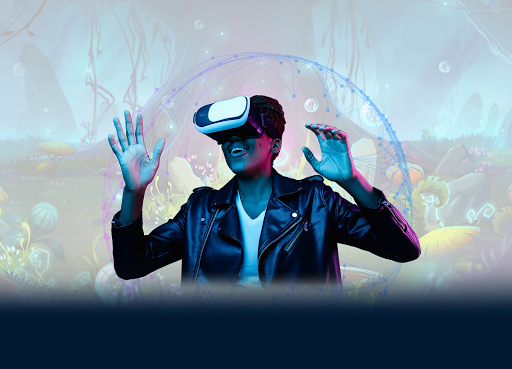What Is the Best Free VR Game

When someone asks, “What’s the best free VR game?”, the answer isn’t as straightforward as you might think. That one word — “best” — hides a whole list of variables: genre, gameplay mechanics, device compatibility, production quality, and more. And you can’t tick all those boxes without clear answers. More importantly, you need to know where to look and what truly makes a VR game worth your time.
And hey, maybe the game that you personally would love doesn’t even exist yet. That’s where VR game development services and a team of experienced pros come into play.
What Makes a VR Game Truly Great?
Let’s break it down. A great VR game isn’t just “whoa, I can wave my hands in the air.” It’s not about the tech — it’s about the experience. For a game to really stick, it should nail at least three out of the five essentials:
-Immersive gameplay: You forget you’re wearing a headset. You’re just there.
-Intuitive controls: No motion sickness, no clunky gestures, just smooth interaction.
-Cross-platform support: From Oculus to SteamVR, and not just for the top-tier hardware.
-Optimization and stability: Because nothing kills immersion like a lag spike mid-battle.
-Social or replay value: You actually want to come back again and again.
And yes, some of the games that check these boxes are totally free. Why? For developers, free games are a strategic move — a way to grow a community, test new mechanics, and break into the market.
The Best Free VR Games
Out of the hundreds of VR titles out there, a few stand out — not just because they’re free, but because they deliver on quality. If you’re into VR or thinking about stepping in, these are worth checking out:
-The Lab (SteamVR). A classic from Valve. A collection of mini-games where you can shoot targets, hang out with a robo-dog, or explore a virtual anatomy lab. Easy to get into, intuitive to play, a perfect intro to VR.
-Rec Room. This isn’t just a game — it’s an entire platform. Millions of users, endless mini-games, quests, and even tools to create your own world. Jump in for a quick session, or build your arena and invite friends.
-VRChat. A social space where the line between game and reality blurs. Thousands of custom avatars and locations — with a touch of chaos. A great example of VR for fun and human connection.
-Pavlov Shack (Oculus Quest). Not quite Counter-Strike, but close. A tactical multiplayer shooter played by everyone from newbies to esports-level players. Solid mechanics, good graphics, real adrenaline.
-Echo VR. Yes, Meta shut it down, but it deserves a mention. A zero-gravity sports sim that felt like a mix of sci-fi, strategy, and athletics. Proof of what VR can be when built with heart.
These aren’t just “decent” games — they’re experiences people keep returning to. Which means they’ve got that spark: emotion, creativity, and real engagement.
What This Means for Developers and Businesses
If you’re looking to enter the VR gaming space, chances are you’re not trying to outdo industry giants. But you can absolutely create something players love in your niche. And every successful project starts with the right team and foundation.
Here’s the thing — you don’t always need to build an in-house studio. In many cases, working with professional VR game development services is faster, smarter, and more scalable.
Why Outsource VR Development Instead of Building a Team?
It’s a legit question — and the answer comes down to flexibility and speed. Building a great VR game takes expertise across 3D modeling, motion physics, UX, sound design, networking, and more. Plus: device testing, platform integration, and safety standards.
Here’s why businesses often go the outsourcing route:
-Lower startup costs – Skip months of recruiting, onboarding, and team-building.
Pro-level experience – VR dev teams have already faced hundreds of real-world challenges.
-Faster time to market – Get to MVP 2–3x faster than with an internal team.
-Easy to scale – From a mini-game to a full-blown metaverse, growth is just a call away.
-Creative control without technical hassle – Focus on the vision, not the debugging.
Choose a dev partner who understands the business of games. The ones who don’t just chase pretty portfolio shots — but real-world wins: successful launches, happy players, and actual ROI.
Final Thoughts
Free VR games aren’t a side product of the industry. They’re proof that the best things in life can be free — if they’re made with intention. For businesses, they’re also a window into what works, what players crave, and how powerful the right approach can be.
If you’re thinking about launching your own VR title, don’t wait. The competition is heating up, players are getting pickier, and tech is becoming more affordable. The key? Choose partners who can turn your idea into a fun, profitable, and unforgettable experience. The kind of partners behind expert VR game development services.
Source link





